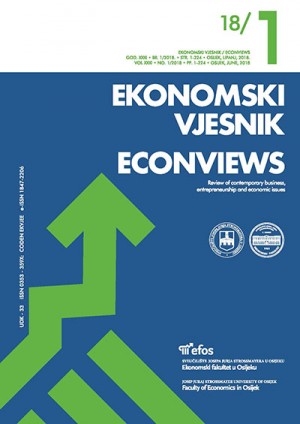Regional development and glocalisation: theoretical framework
Regional development and glocalisation: theoretical framework
Author(s): Dijana Bošnjak, Katarina MaroševićSubject(s): National Economy, Economic policy, Economic development, Globalization
Published by: Sveučilište Josipa Jurja Strossmayera u Osijeku, Ekonomski fakultet u Osijeku
Keywords: Regional development; glocalisation; regionalisation; regionalism; decentralisation;
Summary/Abstract: The importance of regions and regional development in modern economies is unquestionable. In this context, the paper aims at elaborating the term of regional development from various angles and in relation to frequently used terms in this respect. It focuses on discussing the necessity to grant smaller units the power and respect the principle of subsidiarity as well as to accept the model of functional regionalisation. By respecting the principle of subsidiarity, local and regional self-government units are allowed operational space for starting regional development, which can be viewed as globalisation adjusted to the conditions at the local level. Additionally, the paper gives a few positive innovative examples of initiating development and discusses several suggestions for underdeveloped regions in the Republic of Croatia. For instance, the geographical distance of Eastern Croatian counties from the City of Zagreb is much smaller than the actual geographical distance of some other counties (e.g. Dubrovnik-Neretva County), but in the context of the development level, “distance” is much bigger. The paper, thus, points out the need for decentralisation, utilisation of the potential in the counties of Eastern Croatia by starting new businesses and through reindustrialisation.
- Issue Year: 31/2018
- Issue No: 1
- Page Range: 201-213
- Page Count: 13
- Language: English

